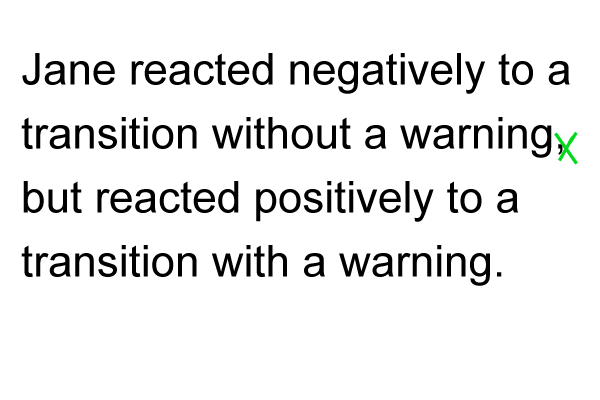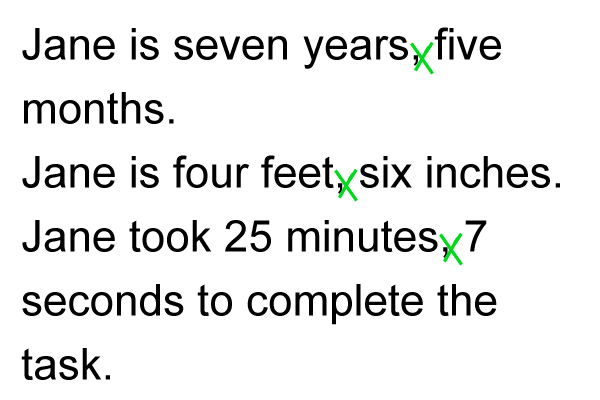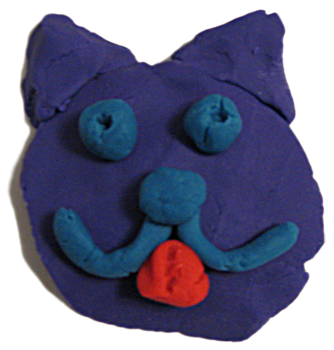Comma Errors
Commas are very useful, but commas are often misused punctuations.
Three common comma misuses are:
- Comma splices (similar to run-ons)
- Missing commas
- Nonessential additions of commas
Comma splices
Like a run-on sentence, comma splices occur when only a comma is used to separate two or more independent clauses. For example, "Jack is good natured, he loves to watch people and smile at them" is a comma splice. You would correct this in the same manner discussed for run-ons: (a) two separate sentences, (b) semi-colon, or (c) comma and coordinating conjunction.
Missing commas
Often individuals forget to use commas, for instance, a comma always goes after the penultimate word in any list of more than than two items e.g., "The carpenter picked up his hammer, nails, bucket,and tape." Listed below are other common instances where people forget to use commas.
Directions: For each item example, complete the Check Your Understanding Activity. In each example, mouse over the words that you think need a comma after them.
Between elements and before the conjunction in items in a series.

 |
Mouse over the words that you think need a comma after them. |
This content requires Flash Player 10 or higher.
 |
|
|
To set off subordinate clauses. (A subordinate clause provides additional information about one element in your sentence. In most cases, these clauses should be set off from the rest of your sentence with a pair of commas.)

 |
Mouse over the words that you think need a comma after them. |
This content requires Flash Player 10 or higher.
 |
|
|
To set off the year in exact dates.

 |
Mouse over the words that you think need a comma after them. |
This content requires Flash Player 10 or higher.
 |
|
|
To set off the year in a parenthetical citation.

 |
Mouse over the words that you think need a comma after them. |
This content requires Flash Player 10 or higher.
 |
|
|
Nonessential additions of commas.
Often individuals use commas in places where they are not necessary. They typically put commas where they would pause or take a breath when speaking the sentence. Listed below are some common instances.
Between the two parts of a compound predicate.

To separate components of measurements.

|







